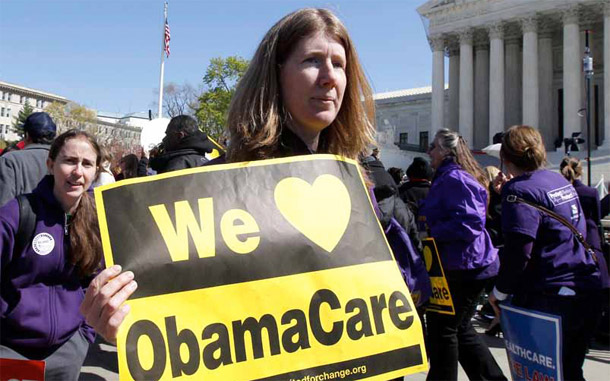When Obama got elected in 2008, he promised a lot of things. “Hope” and “change” were some of his trademark slogans in response to a highly unpopular Bush presidency. Obama riled up a great grassroots campaign and managed to easily defeat GOP opponent, John McCain. One of the promises Obama gained traction for was to offer up universal healthcare, or at least close to universal, for the population not currently covered.

Affordable Care Act
This is colloquially known as the Affordable Care Act (ACA). It serves to provide incentives for small businesses to provide coverage, extend Medicare and Medicaid, and other social services. It also prevents insurance companies from discriminating against those with pre-existing conditions. The bill was signed into law after much debate in 2010.
The benefits of the law are obvious. The amount of emergency room money spent on the uninsured was reaching a critical limit and by making it easier for individuals to get health care either independently or from their employer cut down on these costs.
Other people applaud the law because of the elderly or uninsured who now have access to coverage and treatment. This affects many people during the recession who could not afford insurance before. The law also allows children to stay on their parents’ health insurance for a few more years than was previously allowed. Because of a terrible job market, many students are having trouble finding work and thus insurance. Many people who do not work in health insurance or at a hospital seem to like the law a lot because of all the good it does.
So who’s paying for it?
But it comes at a price. The law asks for a lot of extra money from many different places. Critics on the other side of the aisle attack it for not being fiscally conservative and spending money at a time when the country needs to be saving. This feeling trickles down to a majority of the conservative population.
Others working in health insurance programs, or hospitals, or whoever is otherwise affected by the new restrictions, seem to have a more personal argument. With more people going to the doctor’s office, the more doctors need to handle. This results in less time per patient. Doctors then feel underequipped to handle the sudden rise in admissions. They have been outspoken with this argument getting op-ed pieces published in major publications throughout the country. Many feel pessimistic about the state of medicine and feel that the law is going to inevitably fail. A large percentage of doctors in the union have voted to repeal and replace the law for one that better addresses patients’ needs.
The law, since its inception, has been highly divisive. Many throughout the country feel that it is inadequate to handle larger volumes of patients and has placed an undue burden on an already struggling industry. Other people are highly appreciative of the new law for the benefits that a large number of people now have access to. The main concern with this law is the money behind it, for the government, and for the industry workers who now have to deal with much more.
Kate Simmons is a freelance writer on topics related to health: medical advice, health care and healthy lifestyle tips are all topics she’s interested in.